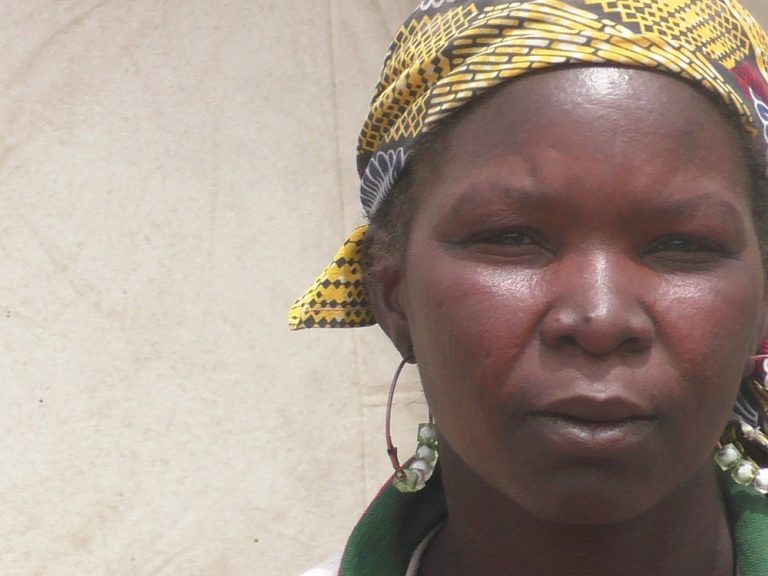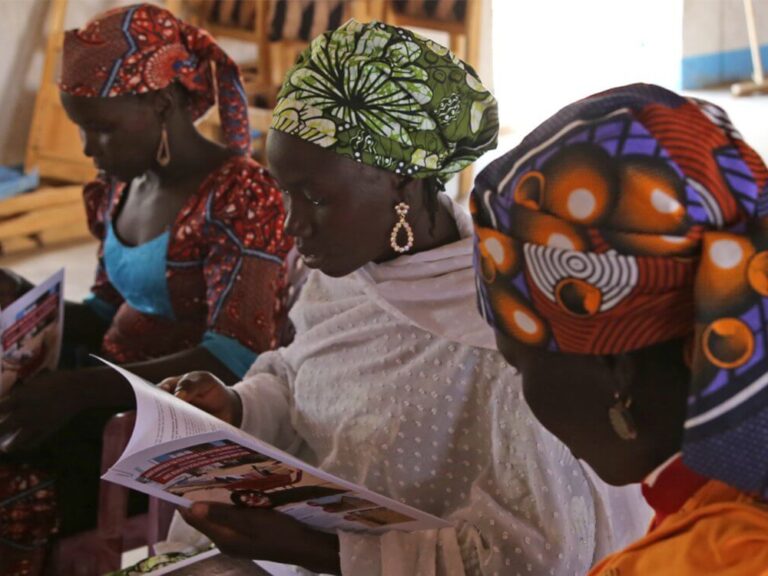The worst scenario that can happen to anyone is undoubtedly to lose everything in their life, to abandon their home, possessions, acquaintances, and family, in order to preserve their life.
Minawao Camp in northern Cameroon receives several dozen refugees every week. These are people whose fates have changed dramatically because of armed conflict that has been going on for more than a decade. Dogidem is one of three women in Minawao Camp who received ShelterBox aid that were visited regularly over six months, to learn more about their life and experiences.
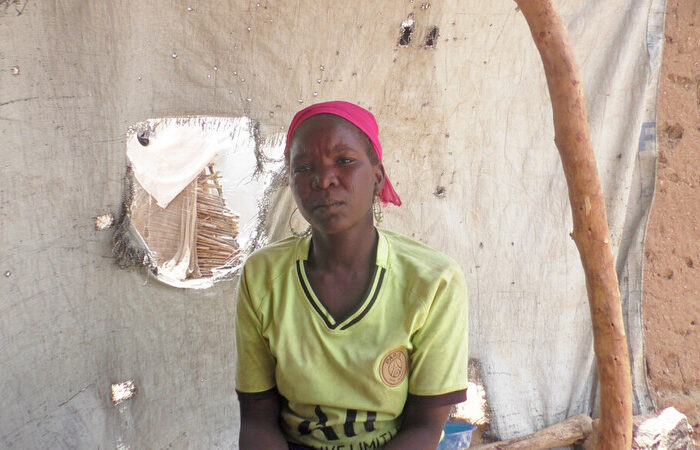

“My village was the most beautiful”
When Dogidem talks about the village she was forced to flee from three years ago, her heart is filled with nostalgia for a life that is now a distant memory.
“My village was the most beautiful with a pleasant climate, the most welcoming and the richest one around. Several tribes lived there in perfect harmony. The principle that characterised us was solidarity.”
In this Nigerian coastal village, Dogidem and her family had built their hut, their family home. Dogidem lived with her husband and their seven precious children. They carried out various activities to support themselves, including agricultural activities and trade. Dogidem considered herself an excellent shopkeeper because she always managed to sell her merchandise to make a good profit. Her husband’s support was very crucial to her and together they carried out their projects.
“On the days when I didn’t have to go to the field, I go to the market to sell some fabrics and food. At times, I didn’t have any problems with mobility, so I was running in all directions to make money.”
“My husband was very supportive of me; he raised and sold cattle and poultry. We never ran out of food or clothes. I had pretty loincloths and jewellery that I wore to go to church, or walk around town.”
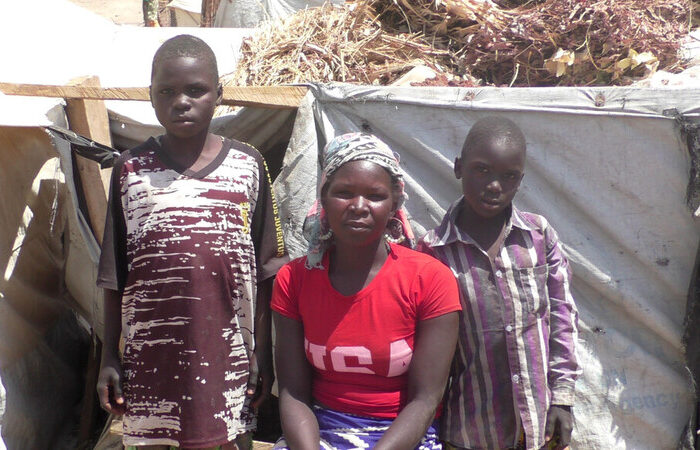

“I convinced myself that it was my destiny and I have to be strong”
Dogidem’s family were forced to flee her village due to a deadly attack that snatched her husband and two of her children. She never imagined it was their farewell. Almost four years have passed since that tragic event.
“At the beginning it was an anguish for me not to know what had happened to my loved ones. I imagined a thousand possible scenarios but now I have resigned to believe they are all dead. I cannot imagine that they become radicalised and now working alongside these monsters who constantly inflict pain and suffering to normal and innocent people like us.”
“When I arrived at this camp, I was psychologically prepared not to see my husband again, I knew that the burden to take care of my family was falling on me. I convinced myself that it was my destiny and I have to be strong… This had led me to flee for Minawao, in my quest for safety.”
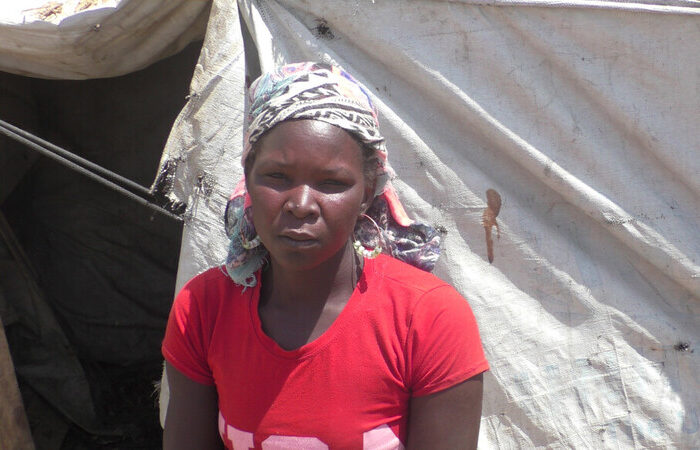

“We remain hopeful that things will get better”
Dogidem did not dream of settling in Minawao camp. She was simply looking for a safe place which does not experience armed conflict. Accepting this new reality was not easy. She had found the security she had sought so much, but the living conditions were very difficult. The harsh climate, increased dependency on others and her disability are all factors that have shaken her confidence.
“Before I became a refugee, I had fields to cultivate, a stock of food. I grew my own food, so I never ran out of food. Here it is hardly if we eat to our fill, or if we have variety in the meals. We try to survive despite the circumstances and we remain hopeful that things will get better when I find a better job to do.”
After a few weeks at the transit centre where she stayed when first arriving at camp, Dogidem was very happy to obtain her refugee certificate which gave her access to her own tent. She quickly became friends with her neighbours; some who she had lived with in the transit centre. Dogidem soon adopted a routine of her own.
“I have trouble getting around in general, so my children, my sister and sometimes my neighbours help me with certain household chores or moving to the market. I try to cook, then I sit in front of my counter and spend my days there. In the evening I talk with neighbours who like to spend time in front of my shed and later I go to bed. My life is quite monotonous.”
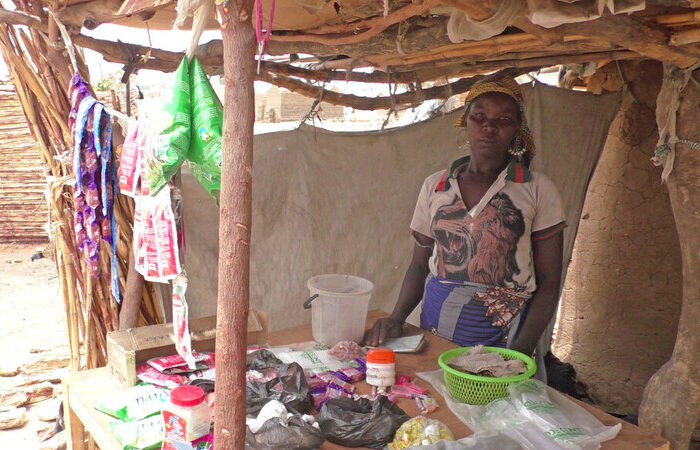

“My passion has always been business”
Dogidem had to adjust to a life inside a refugee camp and focus on becoming independent. To do so, Dogidem engaged in a small commercial activity that did not require considerable physical excursion.
With the support of UNHCR, Dogidem benefited from the construction of a shop display where she could exhibit her merchandise. On her counter, items such as canned food, sugar, chilli, spices, soap, sweets and cookies are displayed. This activity, although not very profitable, allows Dogidem to keep busy whilst earning a small amount.
“My passion has always been business; even though I continue with this activity I no longer have the same mobility as before. I have trouble making real profits because I do not move with the goods and my clientele is reduced. If I had an opportunity to get a huge capital that could allow me to finance my business activities, I would be very happy and I would earn more money. I just hope for a possible miracle but in the meantime, I go with my routine.”
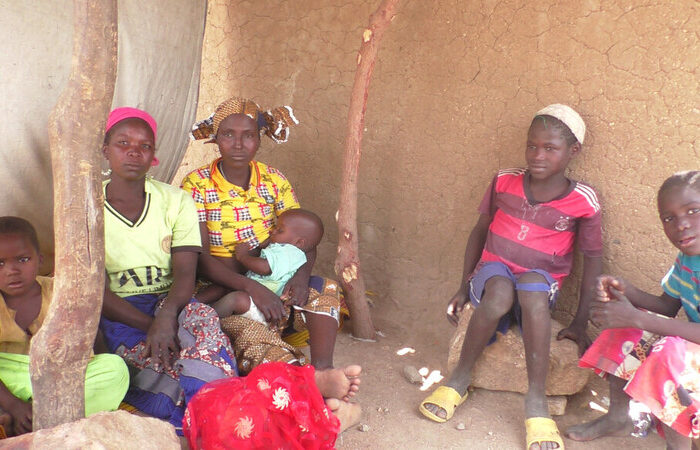

“I will be eternally indebted to them”
In Minawao Camp, Dogidem was pleased to be reunited with her sister Fana and her friend Dawandala. They had managed to cross the border months before her. They met again by chance at a food distribution centre. The women immediately reconnected as if they had never left each other. Now, the young women meet regularly to chat and make plans. Dogidem is also close friends with Aïssa and Nguizaya, two neighbours who have always shown her concern and compassion.
Dogidem feels completely integrated into community life. She feels a sense of belonging in camp as she is treated equally with other members of the community. Dogidem has access to food, health care, shelter. In addition, the generous attitude of the other inhabitants of the village has contributed to Dogidem’s sense of belonging. Like her sister Fana, and many neighbours, who often help her with shopping, fetching water or finding wood. These signs of compassion and solidarity help Dogidem feel a sense of home.
“Many families are making ends meet thanks to community groups. Personally, I received help because of my disability.”
“My sisters have contributed to provide me with food since I am not able to cultivate a field. I will be eternally indebted to them, they are of great help.”
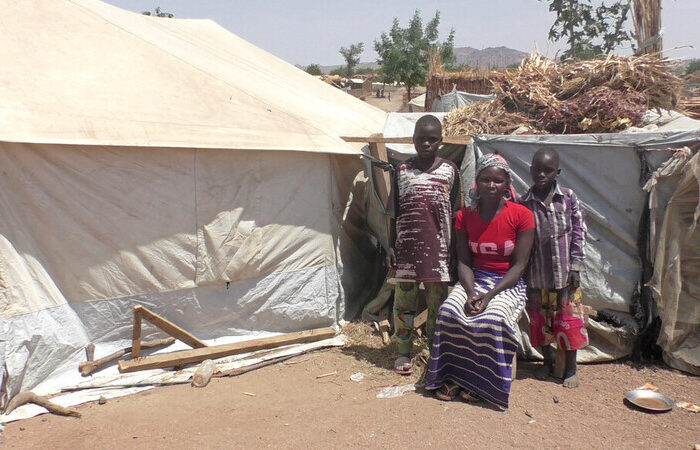

“Each of the household items are particularly beautiful, sophisticated and useful”
On arrival at Minawao Camp, Dogidem spent a month in the transit centre before being transferred to the community centre where she spent another month. Dogidem went through many setbacks, as it was impossible for her to undertake work, provide food for her family or have any sort of privacy. Receiving ShelterBox’s assistance felt like a huge weight was taken off her shoulders.
“I was very delighted when I received my [ShelterBox] tent. My name was on the list of people who needed to be relocated. We headed to the place where the tents had been set up and I received my household items once it was all set up. Each of the household items are particularly beautiful, sophisticated and useful. I was so excited to receive all of them such as the kitchen set, sleeping mats, blankets and water carriers.”
“It was the first time for me to see such a tent. It is very spacious and beautiful. I was very impressed and proud to own one. I spent several months in my first tent which protected me from the cold, sun and rain.”
“Unfortunately, a heavy rain has destroyed the first one and I received another one just recently. I am still apprehensive about the rainy season. However, I feel safe because I used to sleep in the open air and on the floor. Now I have sleeping equipment and I don’t get cold at night.”
“My goal is to build a semi-sustainable shelter”
Dogidem has many plans, the most urgent being the construction of a semi-durable shelter. She is aware that her tent has a limited lifespan, and it is beneficial for her to transform her shelter before the rain makes her homeless again.
“My goal is to build a semi-sustainable shelter. I couldn’t really make a profit from my business, what I earn allows us to simply put some food on the table. If I had the opportunity to expand my business to include pasta, wheat flour and millet, I would certainly earn more money to carry out my projects.”
“In addition, I would like my children to learn activities such as masonry, agriculture or sewing. These are income generating activities nowadays. I thank ShelterBox from the bottom of my heart and individuals who have contributed to the improvement of our living conditions.”

